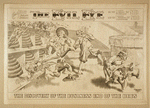[...] "Don't you know that the secret to understanding a city and its people is to learn--what is the word of the street?"
Then he went on to explain, in a mixture of English, Italian and hand gestures, that every city has a single word that defines it, that identifies most people who live there. If you could read people's thoughts as they were passing you on the streets of any given place, you would discover that most of them are thinking the same thought. Whatever that majority thought might be---that is the word of the city. And if your personal word does not match the word of the city, then you don't really belong there.
"What's Rome's word?" I asked.
"SEX," he announced.
"But isn't that a stereotype about Rome?"
"No."
"But surely there are some people in Rome thinking about other things than sex?"
Giulio insisted: "No. All of them, all day, all they are thinking about is SEX."
"Even over at the Vatican?"
"That's different. The Vatican isn't part of Rome. They have a different word over there. Their word is POWER."
"You'd think it would be FAITH."
"It's POWER," he repeated. "Trust me. But the word in Rome---it's SEX."
---Elizabeth Gilbert, Eat, Pray, Love (2006)
In this scene from Eat, Pray, Love, Elizabeth Gilbert reflects on why the city of Rome, the first leg of her year-long journey, is intensely pleasurable for her, yet does not afford her a sense of belonging. As her friend Giulio explains, experiencing such a sense of place requires that one's own "word" coincide with the "word of the street." Gilbert's "word" as she notes is "SEEKER" and thus she is out of sync with Rome's own point of orientation. She will remain a visitor and not a resident--she is "not fully living" in Rome. In the conversation that follows, Gilbert identifies New York City's "word" as "ACHIEVE," and distinguishes it from the word of Los Angeles, which is "SUCCEED." Stockholm's word is "CONFORM," and Naples' word is "FIGHT."
Gilbert's distinction between "achieve" and "succeed" rings true. This is one of those examples of words that we typically think of as interchangeable, yet are essentially different. In reading this, I'm also reminded of Henry James's efforts to distinguish between jealousy and envy, which I wrote about here. [Donald Sutherland's comment to Mary Tyler Moore in "Ordinary People" in which he declares that she is "very determined" but "not really strong" curiously comes to mind as well. ] This kind of exercise forces us to be precise, to think about what words mean, what they reference.
But the larger point of the passage is to reflect on the differences between space and place--to contemplate what makes a space "fit" with our own sense of ourselves. This is the difference between habitability and visitability. I've tried to think of a single word that describes my own hometown city (Washington DC and the metropolitan area that is its extension.) I think the word is "ANGLE." I'ts not suprising then that I have little desire to return except as a visitor. I am not sure of my own word--but it is not "ANGLE."
Saturday, March 6, 2010
Subscribe to:
Post Comments (Atom)






No comments:
Post a Comment